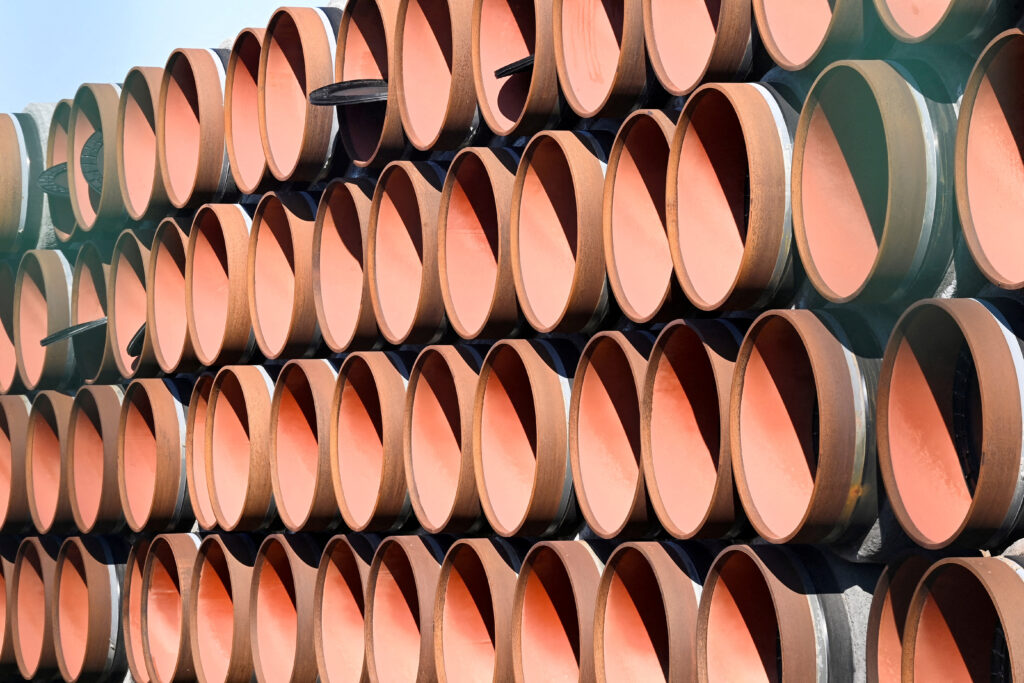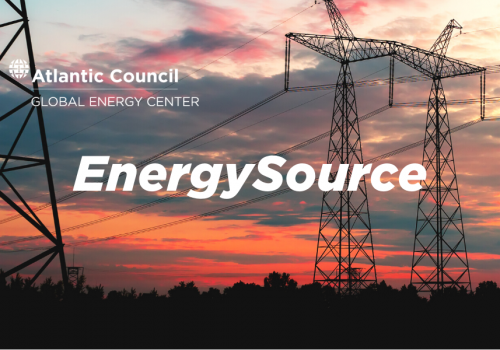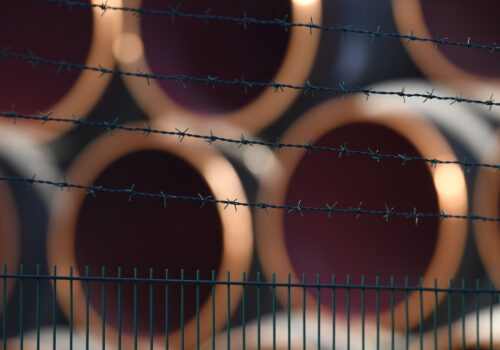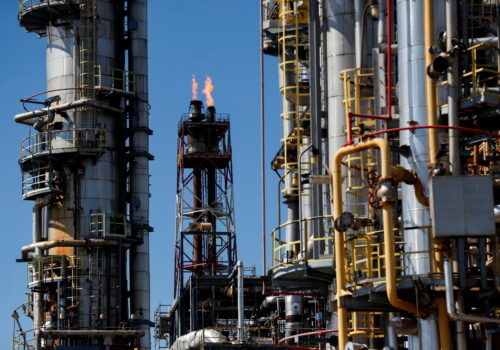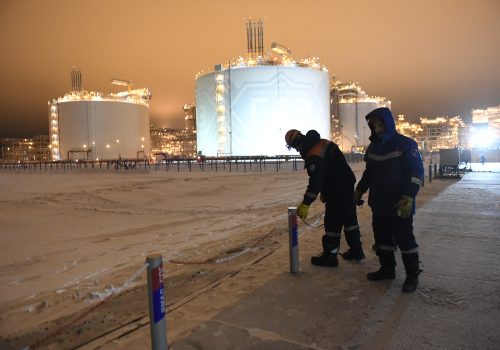The US Senate is moving toward preserving sanctions on the Gazprom-owned Nord Stream 2 pipeline, which expire at the end of 2024. The Senate must press ahead and extend those sanctions to Nord Stream 1 as well. By doing so, the United States would strengthen Ukraine’s security and Europe’s energy independence.
STAY CONNECTED
Sign up for PowerPlay, the Atlantic Council’s bimonthly newsletter keeping you up to date on all facets of the energy transition.
PEESA needs a refresh
In 2020, the United States enacted the Protecting European Energy Security Act (PEESA), which was adopted as part of that year’s National Defense Authorization Act. The act imposes sanctions on foreign persons who provide vessels or ancillary services in the construction of Nord Stream 2, Turk Stream, or any successors of those projects to create new routes for Russian gas to reach the European Union (EU).
This legislation was an appropriate response to European and Ukrainian security threats in early 2020. At the time, construction of Nord Stream 2 would have provided an additional 55 billion cubic meters per year (bcma) of Russian gas to Germany directly through the Baltic Sea.
The route would allow Moscow to bypass transit states to Germany’s east—creating the possibility for the Kremlin to threaten these countries with gas shut offs or other coercive measures without interrupting shipments to the lucrative markets to their west. No country was more exposed than Ukraine, which transited 90 bcma of Russian gas to the EU—half the bloc’s total imports from Russia—as late as 2019. While Nord Stream 2 never came online, the European security situation has changed dramatically since Moscow launched a full-scale invasion of Ukraine in February 2022. Before and during the war, Gazprom found excuses to cut gas supplies via Nord Stream 1. By the time Nord Stream 1 and 2 were rocked by explosions in September 2022, neither were transiting gas.
Down, but not necessarily out
The explosions took out Nord Stream 1 pipelines A and B, which each carried up to 27.5 bcma of Russian gas to Germany before the war. Nord Stream 2 pipeline B was taken out by a third explosion, while pipeline A remains intact but is still not operational.
PEESA should be extended to prevent any of the Nord Stream pipelines being brought online. The legislation places sanctions on activities supporting the “construction” of Nord Stream 2. The words “or reconstruction” should be added to remove any doubt that sanctions would also apply to pipelines being repaired.
The law should also be extended to Nord Stream 1. It’s clear that both Nord Stream 1 pipelines will need to be repaired before they can become operational again. It would be unfortunate if Nord Stream 2 could not be repaired because of PEESA, but Nord Stream 1 could—when in fact that both pose grave security risks to Ukraine and Europe. The historical circumstances which meant that only Nord Stream 2 could be addressed by PEESA should not now constrain the opportunity to address the threat posed by both sets of pipelines.
In addition, the EU has much more difficulty in blocking Nord Stream 1’s reopening because it is subject only to an earlier regulatory regime and not the 2009 Gas Directive. Nord Stream 2 could be stymied even if PEESA were to lapse by the directive’s security of supply test for non-EU owners—which Gazprom would have significant difficulty meeting. A recent scheme by a Miami-based investor to acquire Nord Stream 2 would likely also fail that test, given the prospective buyer’s 20-year business career in Russia. But no existing US sanctions nor EU legislation could block reconstruction of Nord Stream 1.
Updating PEESA would benefit Ukraine, the EU, and the United States
Extending PEESA to Nord Stream 1 would strengthen Ukrainian security. It would prevent Moscow from doing gas deals in Western Europe that isolate Ukraine against Russian economic and military power. Instead, Ukraine would gain leverage: most Russian gas sent to the EU would have to transit Ukraine. This would permit Kyiv greater negotiating power with Moscow and open the prospect of effectively taxing Russian gas to help pay for reconstruction, thereby reducing the cost to the West of rebuilding Ukraine. While Kyiv currently has little appetite to extend a gas transit contract permitting a limited 15 bcma of gas to flow through Ukraine that will terminate at the end of December, post-war flows could give Ukraine bargaining power and a revenue stream for compensation.
By contrast, leaving Nord Stream 1 untouched by PEESA would undermine Europe’s energy security by locking in its dependence on Russian gas. On the eve of the war in February 2022, the EU sourced 45 percent of its gas imports from Russia—in Germany, this figure was 55 percent. Extending PEESA to Nord Stream 1 would encourage continued supply diversification and make it less likely that Europe would return to its dependence on Russian energy.
The Senate must amend and expand PEESA. Simply preserving the existing legislation past its 2024 expiration date does not recognize the dramatic changes in Europe since 2020. The Senate cannot miss a major opportunity to enhance the security of Ukraine, the EU, and the United States.
Alan Riley is a nonresident senior fellow at the Atlantic Council Global Energy Center and a visiting professor at the College of Europe in Natolin, Poland.
MEET THE AUTHOR
RELATED CONTENT
OUR WORK

The Global Energy Center develops and promotes pragmatic and nonpartisan policy solutions designed to advance global energy security, enhance economic opportunity, and accelerate pathways to net-zero emissions.
Image: Pipes for the Nord Stream 2 gas pipeline in the Baltic Sea, which are not used, are seen in the harbour of Mukran, Germany, on September 30, 2022. REUTERS/Fabian Bimmer/File Photo
